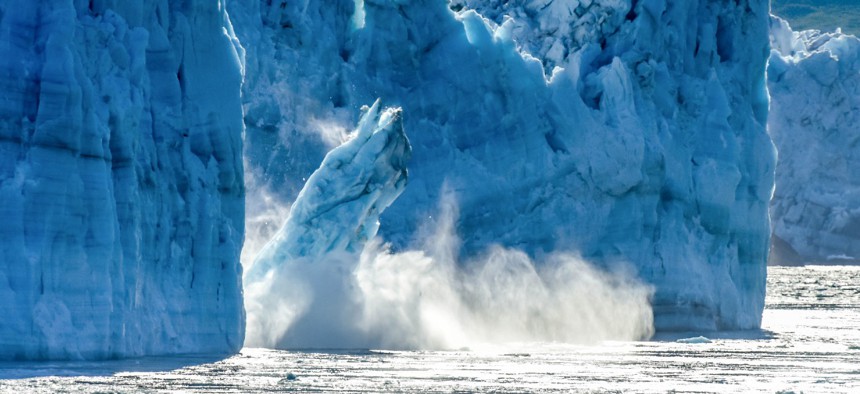
Don Mennig / iStock.com
White House Names Director to Oversee Federal Climate Report
Allison Crimmins worked at the Environmental Protection Agency for 10 years.
The White House announced on Tuesday that a 10-year Environmental Protection Agency veteran will lead the development of the federal government’s upcoming report on climate change.
The 1990 Global Change Research Act established the U.S. Global Change Research Program, which is required to produce a National Climate Assessment no less than every four years that “analyzes current trends in global change, both human-induced and natural, and projects major trends for the subsequent 25 to 100 years.” The assessment brings together the work of 13 federal agencies.
“The fifth National Climate Assessment, which [Allison] Crimmins will oversee, seeks to build on previous climate assessments,” said a press release from the White House Office of Science and Technology Policy. This will be by “developing new interactive tools to help everyday users better access, understand, and put climate data to practical use; expanding areas of focus that can help Americans better prepare for the economic and societal impacts of climate change; and convening authors from a vast array of experiences to help improve mitigation and adaptation planning efforts.”
The White House said substantial progress is already underway on selecting federal coordinators, authors and topics.
Crimmins vowed in a statement to ensure the report “represents and benefits all Americans.” Also, “by highlighting the often-disparate impacts of climate change, we can make informed choices and take collective action that transforms outcomes,” she said. This reflects the Biden administration’s priorities of addressing the climate crisis as well as advancing equity.
During her time at the EPA––October 2011 to the present––Crimmins served as an environmental scientist in both the Office of Air and Radiation’s climate change division and air and policy support office. Before that she worked for Harvard University’s Office of Sustainability, the Stockholm Environment Institute and Massachusetts Institute of Technology’s Joint Program on the Science and Policy of Global Change, according to her LinkedIn.
Crimmins’ “deep experience in working effectively and collaboratively both within the federal system and with stakeholders will accelerate the significant progress already underway and help achieve timely advances in our fight against the climate crisis,” said Jane Lubchenco, Office of Science and Technology Policy deputy director for climate and environment.
Crimmins will serve in a role that had been filled by Betsy Weatherhead, the atmospheric scientist Trump picked to lead the climate report. The Biden administration in April removed Weatherhead—whose selection had come as a “surprise” because she did not “question the seriousness of climate change like other scientists who were installed by the Trump administration to work on the issue,” according to The Washington Post — and reassigned her to her previous position at the U.S. Geological Survey. Weatherhead was not a political appointee, so that was why she was able to stay on through the transition. However, “People with knowledge of the situation said some of Weatherhead’s ideas for the direction of the report clashed with federal officials involved in the research program,” according to the Post.
Crimmins will be working under Michael Kuperberg, U.S. Global Change Research Program executive director. The Trump administration removed Kuperberg from his position in November 2020, but the Biden White House announced in May that they brought him back.
The position of director of the National Climate Assessment is not term-limited, and therefore the individual serves at the pleasure of the president.
The most recent version of the climate assessment came out in November 2018. “Communities, governments and businesses are working to reduce risks from and costs associated with climate change by taking action to lower greenhouse gas emissions and implement adaptation strategies,” it said. “While mitigation and adaptation efforts have expanded substantially in the last four years, they do not yet approach the scale considered necessary to avoid substantial damages to the economy, environment and human health over the coming decades.”







